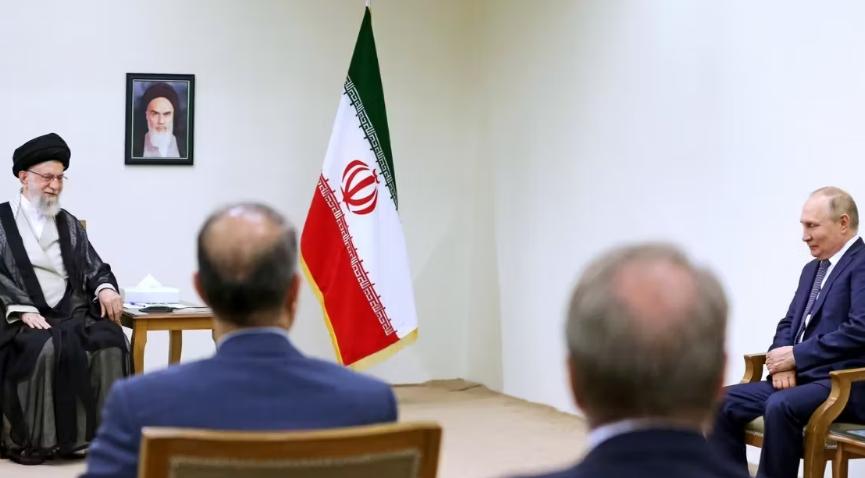Ayatollah Seeks Putin’s Support After Trump’s Crushing Strike On Iranian Nuclear Sites
Desperate and reeling from President Donald Trump’s devastating airstrikes, Iran’s Ayatollah Ali Khamenei has turned to Russian President Vladimir Putin for support. On Monday, Tehran dispatched its foreign minister to Moscow carrying a personal letter from Khamenei, pleading for Russia to back Iran as the regime scrambles for allies following the destruction of key nuclear facilities.
The move comes just days after Trump ordered strikes on Fordo, Natanz, and Isfahan, dealing what Defense Secretary Pete Hegseth described as a crushing blow to Iran’s nuclear infrastructure—“devastated” and “obliterated.”
Khamenei’s outreach to the Kremlin underscores the severity of the blow Iran suffered. According to sources, Tehran is growing frustrated with what it sees as Russia’s lukewarm support. The letter reportedly asked Putin to take a stronger stand against both the United States and Israel, although it did not outline specific requests.
Putin met with Iranian Foreign Minister Abbas Araqchi early Monday at the Kremlin, where he condemned the U.S. action as “unjustified” and “unprovoked,” but stopped short of offering military assistance.
“For our part, we are making efforts to assist the Iranian people,” Putin said vaguely, offering rhetoric but no concrete commitments.
Despite a 20-year strategic partnership between Moscow and Tehran—signed last year to deepen military ties and cooperation—there is no mutual defense agreement obligating Russia to come to Iran’s aid. And with Russia still bogged down in its war in Ukraine, there’s little appetite in the Kremlin for a direct clash with Washington.
At the U.N. Security Council, Russia joined China and Pakistan in demanding a ceasefire and accusing the U.S. of manufacturing justification for the strike, comparing it to the lead-up to the Iraq War. Yet the international posturing hasn’t translated into any meaningful deterrent against Trump’s renewed display of American strength.
Meanwhile, Israel continues to coordinate with Moscow to ensure the safety of Russian specialists working at Iran’s Bushehr nuclear power facility—underscoring just how fragile Russia’s balancing act has become.

